#DistributedLedgerTechnology
Explore tagged Tumblr posts
Text
The Disruptive Potential of Cryptocurrency, Blockchain, and DLT
Cryptocurrency, blockchain, and Distributed Ledger Technology (DLT) have been disrupting industries and challenging traditional business models since their inception. These technologies have the potential to revolutionize the way we do business, interact with each other, and even govern ourselves. In this blog post, we will explore the disruptive potential of cryptocurrency, blockchain, and DLT.
Cryptocurrency
Cryptocurrency, such as Bitcoin and Ethereum, is a decentralized digital currency that uses cryptography to secure transactions and control the creation of new units. Cryptocurrency has the potential to disrupt traditional financial systems by providing a more secure and transparent way to transfer value. Cryptocurrency eliminates the need for intermediaries, such as banks, and can help reduce transaction fees and increase financial inclusion.
Blockchain
Blockchain is a distributed ledger that records transactions in a secure and transparent way. Each block in the chain contains a cryptographic hash of the previous block, creating an immutable record of all transactions on the network. Blockchain has the potential to disrupt a wide range of industries, including finance, healthcare, and supply chain management. Blockchain can help increase transparency, reduce fraud, and improve efficiency.
Distributed Ledger Technology (DLT)
DLT is a type of database that is distributed across a network of computers. Each computer in the network has a copy of the database, and any changes to the database are recorded in a transparent and immutable way. DLT has the potential to disrupt a wide range of industries, including finance, healthcare, and government. DLT can help increase transparency, reduce fraud, and improve efficiency.
Disruptive Potential
The disruptive potential of cryptocurrency, blockchain, and DLT is significant. Here are some of the ways that these technologies could disrupt traditional industries: Finance Cryptocurrency and blockchain have the potential to disrupt traditional financial systems by providing a more secure and transparent way to transfer value. Cryptocurrency eliminates the need for intermediaries, such as banks, and can help reduce transaction fees and increase financial inclusion. Blockchain can also help reduce fraud and increase transparency in financial transactions. Healthcare
Blockchain and DLT have the potential to disrupt the healthcare industry by providing a more secure and transparent way to store and share patient data. Blockchain can help increase patient privacy and reduce the risk of data breaches. DLT can also help improve the efficiency of healthcare systems by reducing administrative costs and improving supply chain management.
Government
DLT has the potential to disrupt traditional government systems by providing a more secure and transparent way to store and share data. DLT can help increase transparency and reduce fraud in government transactions. DLT can also help improve the efficiency of government systems by reducing administrative costs and improving data management.
Conclusion
Cryptocurrency, blockchain, and DLT have the potential to disrupt traditional industries and revolutionize the way we do business, interact with each other, and even govern ourselves. These technologies offer a more secure and transparent way to transfer value, store and share data, and reduce fraud. As these technologies continue to evolve, we can expect to see more innovative solutions emerge that have the potential to disrupt traditional industries even further.
#Cryptocurrency#blockchain#DLT#disruption#finance#fintech#Cryptocurrencies#BlockchainTechnology#DistributedLedgerTechnology#FutureOfFinance#DigitalCurrency#FinancialInclusion#Healthcare#HealthTech#blockchaininhealthcare#patientdata#government#govtech#blockchainingovernment#transparency#innovation#technologydisruption#revolutionizingindustries
44 notes
·
View notes
Video
youtube
Interoperability & Multi-chain as a Service (S01E13)
#youtube#Interoperability#MultiChain#Blockchain#Cryptocurrency#Decentralized#SmartContracts#DistributedLedgerTechnology#CrossChain#DigitalAssets#BlockchainDevelopment#BlockchainIntegration#InteroperablePlatforms#BlockchainSolutions
0 notes
Text
Fund Tokenisation Report Marks UK Innovation
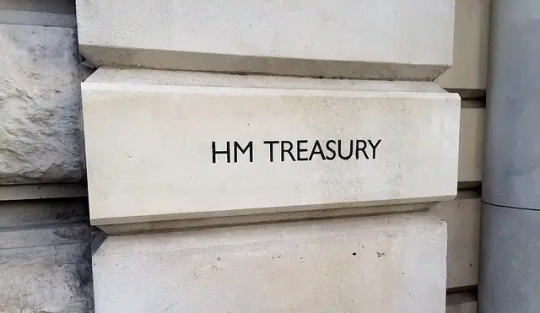
In an era where digital transformation is not just a buzzword but a critical strategy for staying ahead in the competitive global marketplace, the UK once again demonstrates its leadership and innovation. The Technology Working Group, chaired by Michelle Scrimgeour and operating under the prestigious auspices of the government’s Asset Management Taskforce, supported by the Investment Association, has unveiled its second report on the burgeoning field of fund tokenisation. A Closer Look at Fund Tokenisation Fund tokenisation, a term that might seem abstruse at first glance, simply refers to the practice of issuing fund units as digital tokens on a distributed ledger, rather than through traditional record-keeping methods. This innovative approach not only promises to revolutionise the way investments are managed and traded but also offers unprecedented levels of efficiency and transparency. The latest report, titled "Further Fund Tokenisation: Achieving Investment Fund 3.0 Through Collaboration," builds upon the groundwork laid by its predecessor published in November 2023. It delves deeper into the potential applications of tokenisation, such as using tokens as collateral for money market funds and facilitating a fully "on-chain" investment market that could significantly streamline back-office operations. The UK's Position on the Global Stage Bim Afolami MP, the Economic Secretary to the Treasury, has expressed enthusiasm for the report's findings, stating, "As we work to grow the economy, the UK is ideally placed to seize on the transformative capabilities of technology in this industry, combining our expertise in innovation and investment management." This endorsement not only highlights the UK's commitment to fostering innovation but also underscores the nation's readiness to lead the charge in the investment management sector's digital transformation. The Way Forward Looking ahead, the Technology Working Group has set its sights on exploring the potential of artificial intelligence in reshaping the UK's investment management sector. This forward-thinking approach ensures that the UK remains at the forefront of technological advancements, poised to harness new opportunities for growth and competitiveness. Conclusion In conclusion, the Technology Working Group's second report on fund tokenisation is not just a testament to the UK's pioneering spirit in financial technology but also a beacon for the future of investment management. As we anticipate the impact of these innovations on the market, one thing is clear: the UK is not just participating in the digital transformation of the investment management sector—it is leading it. Members of the Technology Working Group: Investment Association EY Blackrock HM Treasury Legal & General Investment Management JP Morgan Asset Management Financial Conduct Authority Fidelity International M&G Baillie Gifford Schroders Aquis Exchange Archax Augmentum Calastone CMS Copperco Galaxy Digital Hargreaves Lansdown Innovate Finance London Stock Exchange Group NEST Northern Trust Sources: THX News, HM Treasury & Bim Afolami MP. Read the full article
#artificialintelligenceininvestment#digitaltransformationinfinance#Distributedledgertechnology#efficiencyininvestmentmanagement#fundtokenisation#investmentfundinnovation#on-chaininvestmentmarket#TechnologyWorkingGroupreport#UKinvestmentmanagement#UK'scompetitiveadvantageinfintech
0 notes
Text
Abu Dhabi Global Market (ADGM) Partners with Solana Foundation to Advance Blockchain Innovation
Abu Dhabi Global Market (ADGM) has inked a Memorandum of Understanding (MOU) with the Solana Foundation, aiming to implement distributed ledger technology (DLT) solutions and promote blockchain innovations, as announced in a press release on February 7. The announcement follows ADGM's pioneering implementation of the DLT Foundations Rules, the world's first regulatory framework specifically designed for blockchain funds and decentralized autonomous organizations. The UAE has been a leader in blockchain legislation and adoption for the past decade and is one of the few jurisdictions with a comprehensive regulatory framework for the industry. The deal aligns with ADGM's ambition to establish itself as a global hub for technology-driven financial services. Driving Growth The partnership aims to expand the ADGM blockchain and Web3 ecosystem in Abu Dhabi by exploring joint initiatives and projects. Collaboration is aimed at stimulating industry engagement and feedback, essential for developing regulatory frameworks and promoting Abu Dhabi's blockchain and Web3 ecosystem. Hamad Al Mazroui, CEO of ADGM Registration Authority, expressed enthusiasm for the partnership, calling it a significant milestone in solidifying ADGM's position as a leader in the blockchain industry. He added: "This collaboration with the Solana Foundation is a testament to the effectiveness of our DLT Foundations platform and our commitment to the growth and development of the blockchain sector." Al Mazroui also emphasized the role of the partnership in advancing future technologies and expanding blockchain knowledge, with a particular focus on regulation and compliance. UAE's Web3 Ambitions The UAE has rapidly become a global hub for blockchain innovation and adoption, a trend that Lily Liu, President of the Solana Foundation, sees as an opportunity for further growth. She stated: "Our collaboration with ADGM is an important step in advancing blockchain adoption across the region and supports the Solana Foundation's mission to promote innovation, security, and widespread use of the network in the Middle East." ADGM, recognized for its innovative approach as an International Financial Center, remains committed to developing technological innovations and fostering the expansion of cryptocurrency initiatives in the digital asset industry. This partnership further strengthens ADGM's blockchain offerings and its strategic vision to become a technological financial center. The partnership marks another important step in the UAE's broader strategy to implement blockchain technology, following ADGM's preliminary licensing of the first DLT fund in collaboration with IOTA and the Solana Foundation's partnership with DMCC Dubai as the official ecosystem partner. Read the full article
#AbuDhabiGlobalMarket#ADGM#Blockchain#Cryptocurrency#distributedledgertechnology#DLT#Innovation#memorandumofunderstanding#MOU#partnership#RegulatoryFramework#SolanaFoundation#UAE#Web3ecosystem
0 notes
Video
youtube
EXPLAIN THE BLOCKCHAIN TRANSACTION LIFE CYCLE
#blockchain #transactionlifecycle #cryptocurrency #decentralizedledger #transparency #security #immutability #cryptothemedbeverage #validation #consensusrules #digitalpackage #transactionrequest #broadcast #digitalsignatures #sufficientfunds #newblock #mining #forging #cryptographicpuzzle #incentivemechanism #propagation #verification #acceptance #decentralizedconsensus #immutable #transparentrecord #securityandaccountability #cryptocurrencytrading #cryptocurrencyinvesting #BingXcryptocurrencyexchange #user-friendlyplatform #advancedtradingtools #competitivefees #digitalassets #fundamentalprocess #distributedledgertechnology
0 notes
Text
Paskirstyto registro technologija
Visa kriptoindustrija paremta paskirstyto registro technologija (Distributed Ledger Technology). Pasigilinkime, kas tai per technologija, #dlt #blockchain #bitcoin #registras #ledger #distributedledgertechnology #money #transfer #p2p #bank
Visa kriptoindustrija paremta paskirstyto registro technologija (Distributed Ledger Technology, PRT). Pasigilinkime, kas tai per technologija, kuri taip bitcoiną padarė bitcoinu. Registras, arba buhalteriškai Didžioji knyga, seniai naudojami apskaitose, o bankuose tai dar aukštesniame lygmenyje. Ten kur pinigai, ten reikalingas ir registras (na ne tik ten). (more…) “”

View On WordPress
1 note
·
View note
Link
Hedera Hashgraph is a distributed ledger technology and consensus algorithm that provides a faster, fairer, and more secure infrastructure to run the decentralized applications. Codezeros provides reliable and supportive Hedera Hashgraph development services to build DApps on the Hedera platform as per the client’s requirements.
#hashgraphblockchain#hederahashgraph#distributedledgertechnology#hederahashgraphconsensus#hederahashgraphcryptocurrency#hederahashgraphtoken
1 note
·
View note
Photo

Have you registered yourself on the DLT platform yet? If not, let Go2Market do it for you.
0 notes
Photo
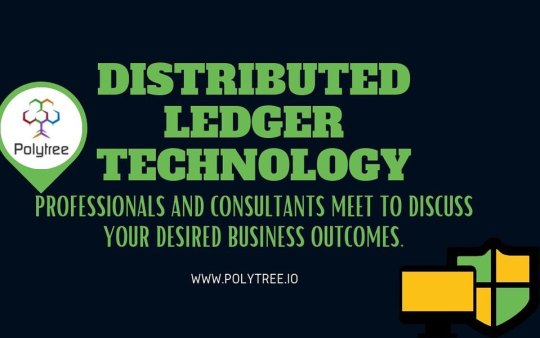
Your business needs general consulting, professional education, or project architecture and implementation. Polytree will be your partner and help you and your team reach all of your organizational milestones. Free consultation to discuss your desired business outcomes. #professionaleducation #projectarchitecture #enterpriseslevel #distributedledgertechnology #technology https://www.instagram.com/p/CIaoDXPL8m7/?igshid=1ucn1y7qpgc73
0 notes
Text
Launch of Cryptocurrencies to Augment Growth of the Global Blockchain Technology Market
A blockchain or also referred to as distributed ledger technology (DLT) is a growing list of records called blocks that are linked cryptography. It is used to make the process of trading a lot more convenient. A trader can buy or sell using his own funds instead of having to wait for the funds to reach their hands. With the use of the Internet, you'll be able to trade in minutes without having to leave your home. You'll also be able to see what the prices of the currencies have done so far and what the future might hold.
Launch of cryptocurrencies is expected to propel growth of the global blockchain technology market. For instance, in June 2019, Facebook launched its cryptocurrency, Libra, which will let you buy things or send money to people with nearly zero fees.
Increasing integration of blockchain in various systems is expected to offer lucrative growth opportunities for players in the global blockchain technology market. For instance, in November 2020, The XDB Foundation announced the addition of Stably Corporation, a Seattle-based fintech firm hyper focused on stablecoin development, to the DigitalBits ecosystem.
Read More @ https://coherentmarketinsights-blog.blogspot.com/2020/11/launch-of-cryptocurrencies-to-augment.html
#BlockchainTechnology#Publicblockchain#Privateblockchain#Consortiumblockchain#Distributedledgertechnology#blockchain#Fintech#marketresearchreport#markettrends
0 notes
Text
Unlocking Learning: The Future of Blockchain in Education

Blockchain technology is revolutionizing the way we think about education. By leveraging distributed ledger technology, blockchain has the potential to make learning more accessible and secure while also providing new opportunities for financing education. With a decentralized system of record-keeping and data sharing, blockchain can provide an unprecedented level of transparency and trust in educational transactions. This article will explore how blockchain can be used in educational settings, as well as some of the challenges associated with its adoption. We’ll examine how this emerging technology could help unlock learning for everyone by making it easier to access quality educational resources at a lower cost. Finally, we’ll look at some examples of successful implementations of blockchain solutions in schools around the world.
What is Blockchain?
At its core, blockchain is a distributed ledger technology (DLT) that records and stores data in an encrypted and secure format. It is a system of recordkeeping and data sharing that is completely decentralized, meaning no single entity has control over the network. Its architecture allows for trusted transactions to take place without the need for intermediaries or centralized authority. This decentralization makes it more resistant to manipulation and fraud than traditional systems. In addition, because data stored on the blockchain is immutable, it can provide increased levels of trust between all parties involved in educational transactions.
Benefits of Blockchain in Education
Blockchain technology has been transforming various industries like banking, healthcare, and logistics. However, not many people are aware that it also holds great potential in the education sector. By employing blockchain technology, educators can develop new and innovative solutions for the most pressing issues faced in the education industry today. Secure Record-Keeping One of the primary benefits of blockchain technology in education is secure record-keeping. Educational organizations generate a significant amount of documents, including certificates, transcripts, and degrees. The traditional methods of record-keeping, like paper-based or centralized digital systems, are susceptible to tampering, loss, and fraud. Blockchain can help ensure the integrity of education records by providing a transparent, immutable, and decentralized ledger of all academic achievements. This feature can save time and resources wasted on manual verification of credentials and improve transparency for students and employers alike. Peer-to-Peer Learning Blockchain technology can support the development of peer-to-peer educational platforms by offering a secure, decentralized network. The biggest advantage of peer-to-peer learning is that it allows learners to take control of their education and learn at their pace. Blockchain-based peer-to-peer platforms enable students to share their knowledge and skills without relying on traditional academic institutions. As a result, both students and educators can benefit from an open, collaborative, and decentralized learning environment. Personalized Learning Another way blockchain is revolutionizing education is through personalized learning. Blockchain technology can support the creation of a personalized educational experience that considers individual needs, preferences, and learning styles. For instance, educational institutions can use blockchain to store a vast amount of data on student performance, behavior, and aptitude, which can be analyzed and used to create custom curriculums. By using this information, educators can offer tailor-made learning paths that meet the unique needs of every student. Digital Credentials Blockchain can also help streamline and secure the credentialing process for academic achievements. Digital credentials stored on the blockchain can substantially improve transparency, portability, and security compared to traditional degrees and certificates. With blockchain, students can share their digital credentials with potential employers or academic institutions, and employers can verify them in real-time. This feature can enhance the efficiency and convenience of the credentialing process while minimizing the chances of credential fraud. Funding Transparency Finally, blockchain technology can enable increased transparency in funding for educational institutions. Blockchain can provide a secure, decentralized platform that enables donations and funding to flow directly from donors to institutions. Such a system can significantly reduce transaction costs, increase autonomy, and promote trust between institutions and donors.
Implementing Blockchain Technology in Schools
The use of blockchain technology in schools can bring many benefits, such as increasing transparency, security, and efficiency. In this blog post, we will explore the potential of blockchain technology in schools and how it can be implemented in the education sector. Transcripts and Record-Keeping One of the most significant benefits of blockchain technology is that it can make the process of maintaining and verifying transcripts and student records more secure and efficient. Currently, schools and universities rely on central databases to store student data, which means that records can be susceptible to fraud and irregularities. By adopting blockchain technology, schools can have a secure and tamper-proof digital ledger that can store student records and transcripts in a decentralized manner. This can help to prevent fraud, reduce administrative costs and increase transparency. Certifications and Diplomas Another significant application of blockchain technology in schools is the issuance of certifications and diplomas. With blockchain technology, students can receive digital certificates and diplomas that are stored on a distributed ledger, making it impossible to alter or tamper with the records. Moreover, using blockchain technology for issuing certificates can streamline the process and reduce the time and cost of obtaining certification. Secure Communication and Collaboration Schools need to ensure that sensitive data remains protected from cyber-attacks and unauthorized access. With blockchain technology, schools can establish secure communication channels, allowing students and educators to communicate and collaborate safely. Blockchain technology can also help to prevent unauthorized access to sensitive information and data by providing an immutable records system that allows administrators to track and monitor access. Payment Systems and Financial Aid Distribution Administrative tasks such as distributing financial aid, processing payments, and managing student fees can be time-consuming and costly. Blockchain technology can be used to streamline these processes and make them more efficient. Schools can implement blockchain technology to distribute financial aid and process payments securely and transparently. Digital Identity A digital identity is a unique identifier that can be used to verify an individual's identity online. Blockchain technology can be used to create a decentralized digital identity system that is secure, transparent, and tamper-proof. With blockchain technology, students and educators can create digital identities that can be verified and authenticated easily, providing a secure and streamlined way of accessing services.
Using Cryptocurrency to Fund Education
The use of cryptocurrency in schools and universities can also provide a more secure and transparent alternative to traditional payment systems. Schools can accept donations or pay for services using cryptocurrency, making the process faster, cheaper, and easier to track. Furthermore, blockchain-based tokens can be used by students to purchase educational materials or pay tuition fees securely. Preventing Academic Fraud Blockchain technology can help to reduce the risk of academic fraud by providing a secure and tamper-proof way to store and access student information. With blockchain technology, schools can create an immutable record of student data that cannot be altered or tampered with, reducing the chances of fraud or irregularities.
Making Learning More Accessible and Secure
Blockchain technology can also be used to make learning more accessible and secure. Schools and universities can create online classrooms that are powered by blockchain technology, providing students with access to educational materials securely and reliably. Blockchain-based platforms can also enable remote learning opportunities, allowing students to gain knowledge from anywhere in the world. Overall, blockchain technology has the potential to revolutionize the way schools and universities operate, making processes such as issuing certifications and diplomas, transmitting data securely, distributing financial aid, and processing payments more secure, transparent, and efficient. By leveraging this revolutionary technology, schools can create a more accessible, secure, and cost-effective learning environment for students of all ages. By implementing blockchain technology, schools are not only making sure that the information is secure but also ensuring that it is accurate and reliable. This helps to reduce the amount of time and cost of obtaining certification. With blockchain technology, schools can create a secure and reliable way to store and track data, making sure that it is accurate and up-to-date. Furthermore, blockchain technology can help schools to reduce administrative costs and make processes faster, easier, and more secure. Ultimately, blockchain technology can be used to improve the way schools operate and provide students with a secure and reliable learning environment.
Overcoming Adoption Challenges
The challenge in implementing blockchain technology in the education sector is its adoption. Schools and universities need to be willing to invest in the technology and devote resources to properly educate staff on how it works. Schools could also look for ways to incentivize students and faculty to use the technology by providing rewards or discounts for those who embrace it. Lack of Awareness and Expertise One of the most significant challenges schools face is a lack of expertise in blockchain technology. Many educators either do not understand blockchain technology or do not know how to implement it. Educators need to invest in professional development resources so that they can better understand blockchain technology and adapt it to suit their academic needs. Schools can also look to partner with technology companies that have dedicated blockchain experts who can provide the necessary guidance and training. Limited Budget for Implementation Another significant challenge that schools face is budget restrictions. Blockchain implementation requires an upfront investment that may deter some schools from adopting it. To overcome this challenge, schools can explore cost-effective blockchain solutions, such as open-source blockchain platforms or hosted blockchain-as-a-service (BaaS) solutions. Schools can also look to partner with blockchain startups that specialize in the education sector, which may be more affordable than established blockchain companies. Integration with Existing Systems Another major challenge of implementing blockchain technology in schools is integration with existing academic systems. Many schools have already invested in legacy systems, which may be difficult to integrate with blockchain technology. One approach to overcoming this challenge is to take a phased implementation approach, where schools can gradually integrate blockchain capabilities into the existing academic infrastructure. Another approach is to adopt blockchain solutions that offer seamless integration with existing systems, such as blockchain middleware. Regulatory Compliance Schools must comply with a range of regulations and laws related to student data protection and privacy. The introduction of blockchain technology in the education sector may leave educators uncertain about its compliance with data protection laws. To navigate these challenges successfully, schools need to involve legal experts in the blockchain implementation process. Schools should also consider blockchain solutions that comply with regulatory requirements, such as permissioned blockchain platforms that offer greater control over data access and sharing. Resistance to Change Finally, schools face the challenge of resistance to change. Educators may be hesitant to adopt blockchain technology due to concerns about its security and effectiveness. To overcome this challenge, schools can engage with educators meaningfully and effectively to explain the benefits of implementing blockchain technology. Educators can be assured that blockchain technology offers a secure and transparent way to manage academic data that can benefit both students and educators.
Conclusion
Blockchain technology is a powerful tool that can revolutionize the way schools operate and provide students with a secure learning environment. While there are several challenges to overcome when implementing blockchains in education, such as lack of expertise, limited budget for implementation, integration with existing systems, regulatory compliance, and resistance to change; these challenges can be managed by taking a phased approach or partnering with experts who understand blockchain technology. With careful planning and execution, schools have the potential to unlock immense value by leveraging this revolutionary technology. Sources: THX News & e-Learning Industry. Read the full article
#Blockchaintechnology#Decentralization#Digitalcredentials#Distributedledgertechnology#education#Fundingtransparency#Implementingblockchaintechnologyinschools#Peer-to-peerlearning#Personalizedlearning#Record-keeping
1 note
·
View note
Photo
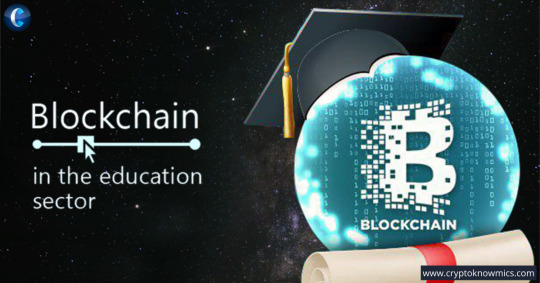
Some of the universities and higher education institutions have started fueling their system with Blockchain to maintain student records, innovative learning techniques, and many more. There is a higher probability that Blockchain will become an impeccable part of the education system in the coming years.
In this article, let us understand more about the scope of Blockchain in the education sector and try to explore the benefits of Blockchain in education.
Read More
#Blockchain#BenefitsofBlockchainineducation#Distributedledgertechnology#Blockchaintechnology#Cryptocurrency#cryptonews#Blockchainnetwork#Cryptoblogs
0 notes
Photo
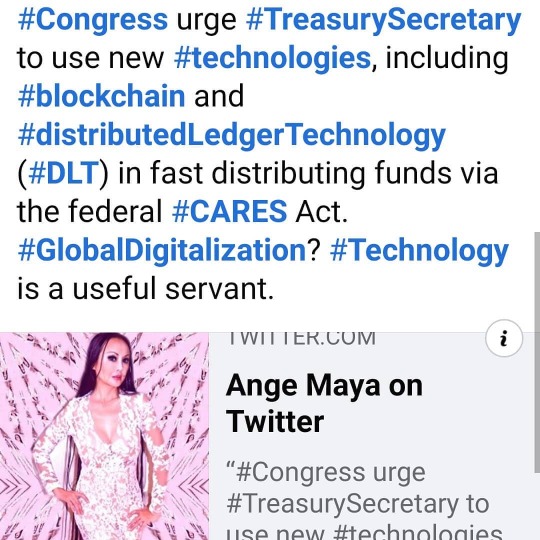
#Congress urge #TreasurySecretary to use new #technologies, including #blockchain and #distributedLedgerTechnology (#DLT) in fast distributing funds via the federal #CARES Act. #GlobalDigitalization? #Technology is a useful servant. https://www.instagram.com/p/B_toxLYlrF4/?igshid=194ilb5khgv0y
#congress#treasurysecretary#technologies#blockchain#distributedledgertechnology#dlt#cares#globaldigitalization#technology
0 notes
Text
Myths of Blockchain
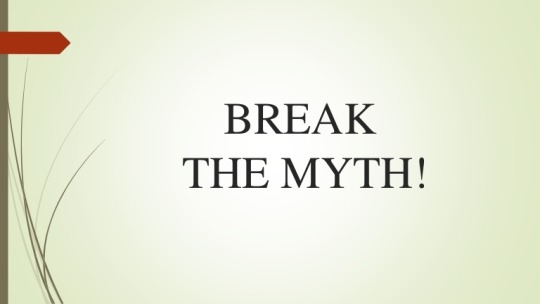
Whenever a new technology emerges in the market, mixed opinions arise from the techies. Few flags that as a disaster while few claim that as a lifesaver. Blockchain is not an exception to it. There come Solution Providers who utilize the opportunity by busting a few unresolved queries; declare themselves as the best in the industry and play the money-making game. While the rest of unaddressed queries remains as MYTHS. Myths remain as myths because of 2 major reasons. Either we don’t have time to analyze and just ride the wave or we are afraid of losing something as a cost of doing so. Let’s break a few blockchain myths today! Myth 1: Blockchain is costly Partially True

Blockchain - Not Costly all the time Blockchain implementation depends on lots of factors like -The complexity of the problem -The number of stakeholders involved in the network -Need for integration with existing systems/products -Migration of an existing system to the blockchain platform -Need for 3rd party service providers (AWS, Twilio, etc.)Maintenance, etc. Based on the requirements, the cost may vary.
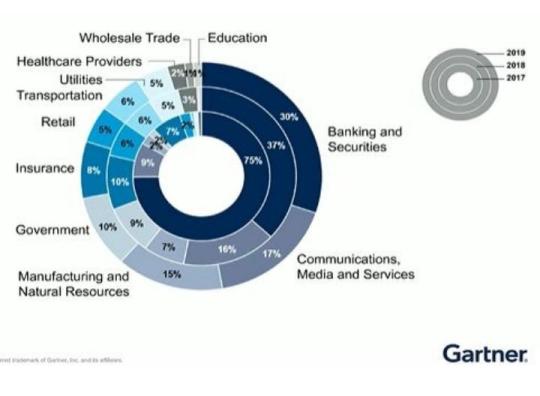
Blockchain in other Industries Myth 2: Blockchain is only for Financial Services Not At All This myth remained unbroken for a very long time. Now it has crossed its horizon and stepped into every possible field of service. Healthcare service providers are keen on using blockchain, especially in telemedicine services. Recently Supreme Court of India curbed its restrictions on cryptocurrency trade-in India. Tamilnadu Govt. joined the initiative and is aiming to develop a state-wide blockchain to enable all the Govt. entities to avail the transparency and security. Extending its use to other departments may soon be legal based on its implementation success. Myth 3: Blockchain is nothing but a cloud-based database False Blockchain is a set of nodes(internet-enabled computers) which registers the timestamps of transactions. It is a tamper-proof digital ledger. The stakeholders are updated on the new transactions with Proof of Existence but not the actual documents like the cloud-based database. Myth 4: Private Blockchains are secure than Public Blockchain False

Private Blockchain is not so secure Public blockchains are decentralized, meaning any participant who is willing to participate can participate using the protocol when all the stakeholders approve it. All the stakeholders are owners of the entire network. More number of participants makes the information available at multiple nodes. The more the number of participants more is security. Whereas the private blockchains, on the other hand, are invitation-only networks where the ownership rests with one. This makes the network centralized. Private blockchains are faster as the authentication takes lesser time. But it is less secure as the number of nodes is less. Best Part of Blockchain is Yet to Come
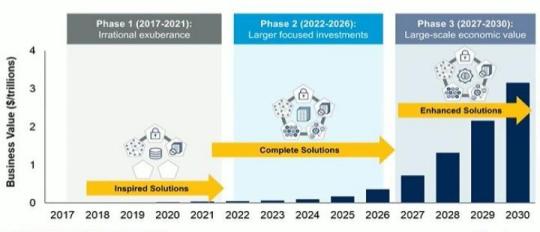
Future of Blockchain - Gartner As per Gartner’s prediction, Investments on Blockchain will be more from 2022 and large scale economic value will be seen from 2027 across the globe. To the surprise, the number of live blockchain cases is more in the APAC region than any other country in the world and by 2023, blockchain will support $2 trillion goods and services management & tracking per annum. Let’s see more interesting facts and myths about blockchain in future articles. Stay tuned with KriyaTec Blogs. Would you like to know how KriyaTec made a Blockchain-enabled Intelligent Insurance Claiming System? contact us now Check out Our Blockchain case Studies Read the full article
0 notes
Link
Hedera Hashgraph is a distributed ledger technology and consensus algorithm that provides a faster, fairer, and more secure infrastructure to run the decentralized applications. Codezeros provides reliable and supportive Hedera Hashgraph development services to build DApps on the Hedera platform as per the client’s requirements.
#hederahashgraphblockchain#hederahashgraph#distributedledgertechnology#hederahashgraphico#hederahashgraphdevelopmentcompany#hederahashgraphdevelopment#hederahashgraphbitcoin#hederahashgraphcryptocurrency#hederahashgraphplatform#hederahashgraphconsensus#hederahashgraphhyperledger#hederahashgraphmining#hederahashgraphtoken
0 notes
Photo
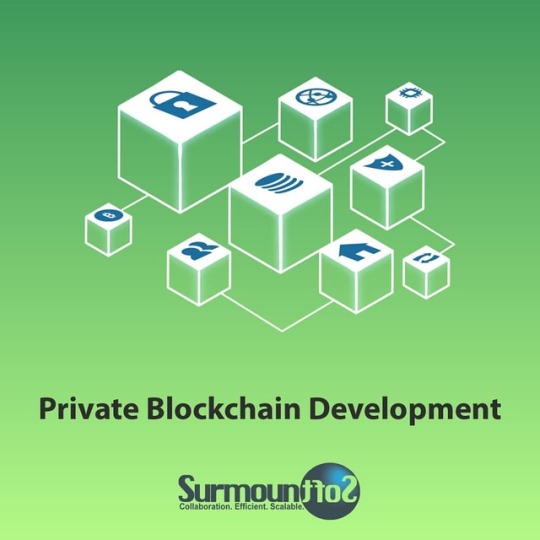
Create Transparency – improve your business with a #privateblockchain Private Blockchain software are revolutionizing the businesses and gaining popularity at exponential adoption rate. Visit us at https://lnkd.in/f9TyFn7 to see how we can help you with your #privateblockchainprojects. #transparency #blockchainsolutions #blockchaindevelopers #distributedledgertechnology #surmountsoft https://www.instagram.com/p/BunaFbPnzJj/?utm_source=ig_tumblr_share&igshid=6z425f1p9ghc
#privateblockchain#privateblockchainprojects#transparency#blockchainsolutions#blockchaindevelopers#distributedledgertechnology#surmountsoft
0 notes